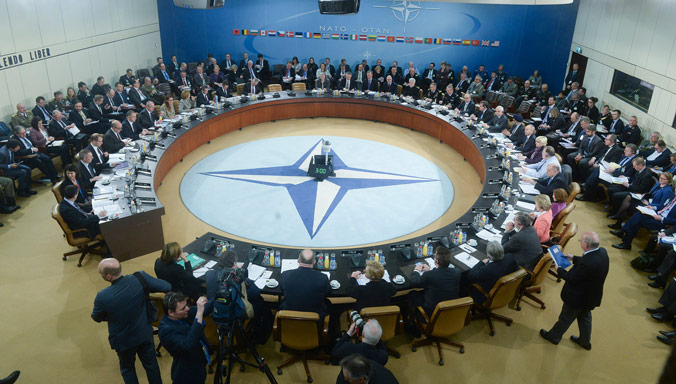NATO Defence Ministers take decisions to strengthen the Alliance
NATO Defence Ministers wrapped up two days of talks in Brussels on Thursday (15 February 2018), focused on the NATO Command Structure, fair burden-sharing and the Alliance’s efforts to project stability beyond its borders.

On Wednesday, ministers took decisions to modernise the NATO Command Structure, in response to a changed security environment. The adapted Command Structure will place a greater focus on maritime security, logistics and military mobility, and cyber defence. Ministers agreed to establish a new Joint Force Command for the Atlantic, to help protect sea lines of communication between North America and Europe, as well as a new support Command for logistics, reinforcement and military mobility. In June, Defence Ministers will decide on the required timelines, locations and increased staff levels.
Burden-sharing was also a key topic of discussion. Ministers took stock of progress in implementing NATO’s Defence Investment Pledge. By 2024, 15 Allies are expected to spend 2% of their GDP or more on defence. “We are moving in the right direction, and I look forward to even more progress in the years ahead,” said Secretary General Jens Stoltenberg.
Later, Ministers were joined by EU High Representative Federica Mogherini and representatives from Finland and Sweden for a discussion on NATO-EU cooperation. “We are committed to stepping up our cooperation on military mobility, cyber defence and in countering terrorist threats,” said Mr. Stoltenberg. Allies also addressed recent EU decisions on defence and how to ensure their complementary with NATO’s efforts.
On Thursday, Ministers discussed NATO’s role in projecting stability and fighting terrorism. Allies agreed to start planning for a NATO training mission in Iraq, at the request of the Iraqi government and the Global Coalition to Defeat ISIS. A mission will make current training efforts more sustainable, with better resourcing and a well-established process for Allies to contribute forces. “We will also plan to help the Iraqi forces become increasingly professional by establishing specialist military academies and schools,” said Mr. Stoltenberg. As part of their discussions, Allies also considered NATO’s other priorities in the South. “We agreed that we need to improve our ability to react to future crises in the region, including with enhanced planning and exercises,” said the Secretary General.
